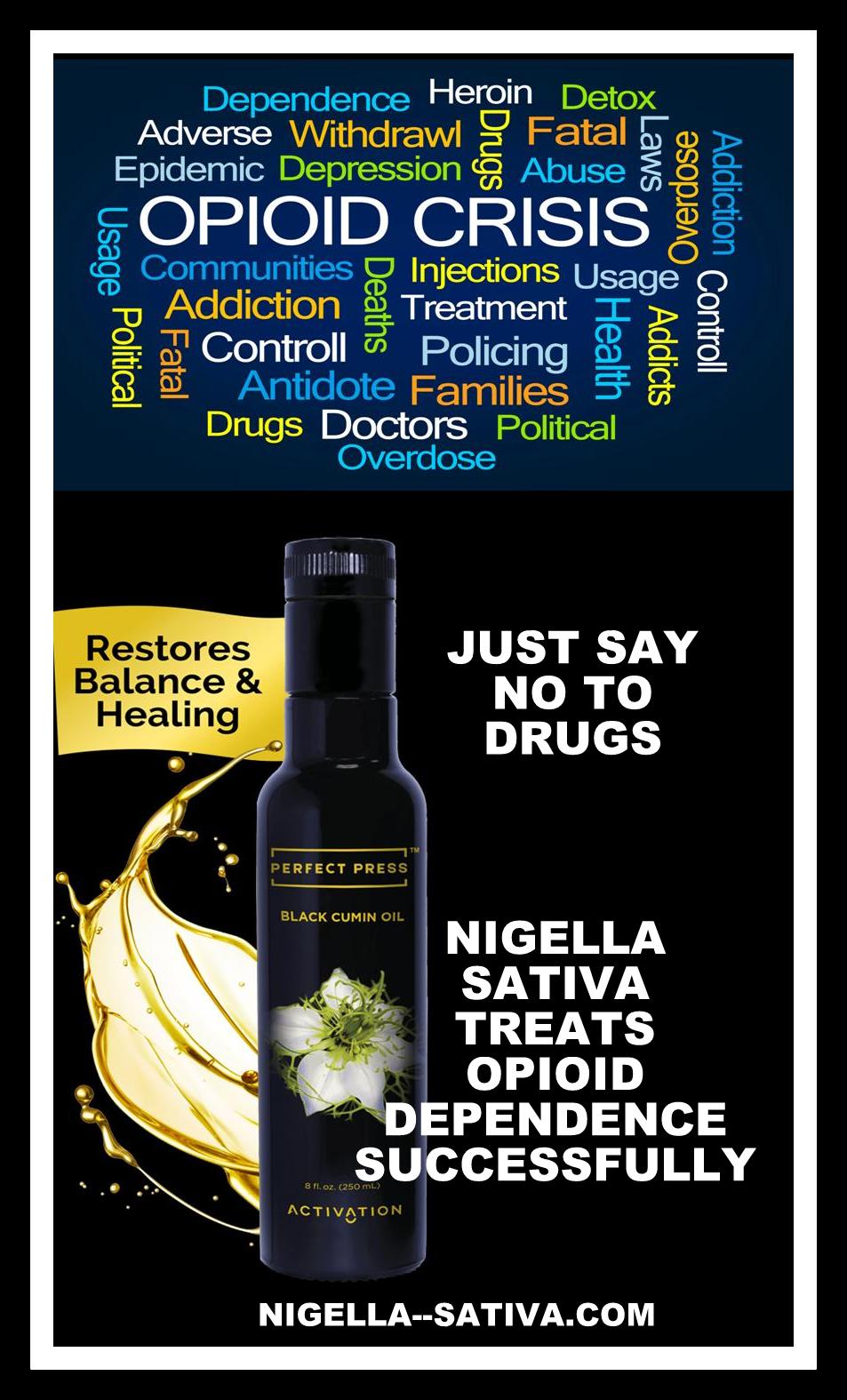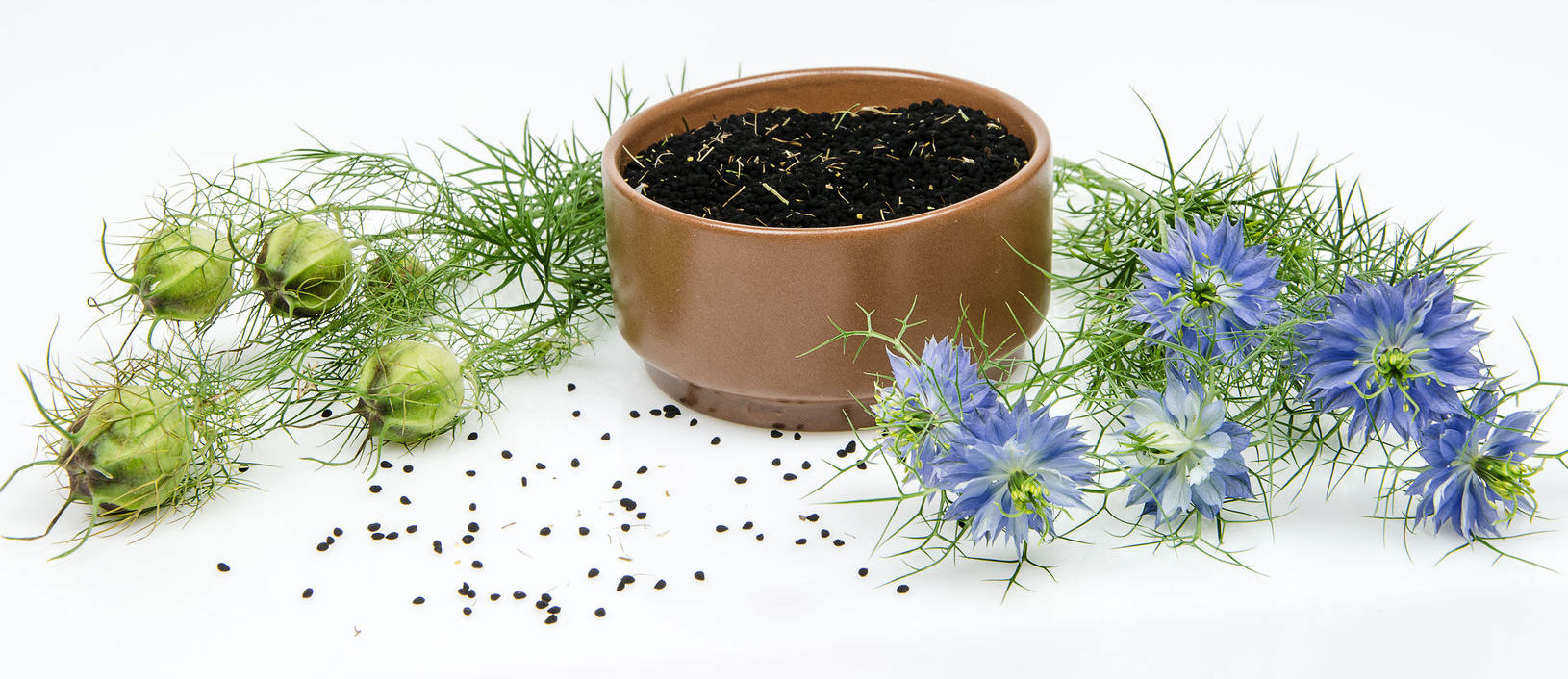- HOME - START HERE
- CONSULTATION SERVICES
- 911 EMERGENCY
- EBOOKS
- Store
- DOSAGES
- HOW TO TAKE
- ANTI-AGING
- CBD AND NIGELLA SATIVA
- RESEARCH SHOWS THAT CANCER RATES WILL RISE DRASTICALLY OVER THE COMING YEARS
- FIBRO CATEGORY
- HERPES CATEGORY
- HIV- Category
- Honey - Category
- Pets
- Top 20 Reasons to use Black Cumin Oil and Capsules
- STROKES CATEGORY
- WEIGHT LOSS CATEGORY
- ANSWER THE QUESTIONS
- Articles
- BLACK SEED OIL IS BETTER THAN TYLENOL FOR ARTHRITIS RELIEF
- Migraines - Headaches - 12 Remedies with Pictures
- My Protocol for Dementia Recovery
- PCOS and Nigella Sativa
- PRIVACY POLICY - GDPR COMPLIANT
- My Team
- About
- Healthy Articles
- Nigella Sativa Online Courses - Part 1
- Childhood Epilepsy
- Natural Diuretics
- Healing Effect on Sarcoidosis
- Nigella Sativa Respiratory Illness
- Cardiovascular Disease
- Depression and COVID19
- 12
- How to Use Nigella Sativa
- How Contagious is Leprosy
- Supporting Human Health - The Immunomodulator
- Nigella Sativa Cancer Ebook
- OK, I am a Muslim - Now What?
- Everything You Ever Wanted to Know About Black Seeds
- Islam Cancer Ebook
- DONATION
- Nigella sativa is an safe alternative Non-Hodgkin’s treatment option
- RESEARCH ON WHY YOU SHOULD HEAT NIGELLA SATIVA SEEDS
- Black Seed Cuisine Ebook
- IS THERE A CURE FOR LUPUS - NATURAL SOLUTIONS
- Black Seed Oil
- TURMERIC DETOX AND MORE
- MASTERS OF HEALING
- PAYMENT RECEIVED
- Non-clickable Page
- IRRITABLE BOWEL SYNDROME - NATURAL SOLUTIONS
- MY CANCER COLLECTION
- CONTACT
Nigella Sativa is an Effective Treatment for Opioid Dependence
THIS ARTICLE IS COPYRIGHTED FOR NIGELLASATIVACENTER.COM ONLY. ALL RIGHTS RESERVED.
|
One of the biggest problems facing the world today is prolific drug abuse–of the legal variety.
According to the latest figures, at least 36 million people worldwide are now addicted to a class of prescription medications for pain relief known as opioids, which includes heroin, morphine, and a variety of widely prescribed pharmaceuticals like codeine, fentanyl, and hydrocodone [1]. These FDA-approved drugs are powerfully addictive, and official government data suggests that because so many people are now hooked on them, opioid overdoses have become the leading cause of death in the developed world [2]. It's a very serious issue that health authorities everywhere are now trying to tackle through increased awareness, crackdowns on access, rehabilitation programs, and even declarations of public health emergency. But one of the things that those occupying positions of power seem to be ignoring or overlooking are natural treatments for opioid dependence that avoid the use of even more chemicals . One such option is nigella sativa, an herb that also goes by the name of black cumin or black seed that numerous studies have identified as a viable option for treating opioid dependence. |
Treating Opioid Dependence with Nigella Sativa
Hailing from the warm, arid regions of the Middle East, nigella sativa–and its seed oil in particular–has become something of a folk medicine miracle when it comes to the way it's being used in modern opioid dependence treatment.
This is primarily due to the fact that it's one of the few natural options out there that peer-reviewed science has found to be powerfully effective in curbing the extreme and debilitating opioid withdrawal symptoms that typically accompany the discontinued long-term use of opioid drugs and medications.
Various ancient systems of medicine have collectively and definitively established nigella sativa as a functional remedy for addressing a wide range of varying health conditions, including immune disorders, inflammation, and even cancer. But it wasn't until fairly recently that inquiring minds in the field of science uncovered the amazing truth that nigella sativa helps to treat pain in a way similar to modern opioids–but without the deadly side effects.
The evidence is so strong that many believe nigella sativa might just be the solution that the world needs–and is desperately looking for–to overcome the disastrous opioid epidemic.
Much of this is attributable to the fact that nigella sativa mysteriously targets pain in a way similar to opioids, and yet it is not an opioid in any way, shape, or form. Many people with opioid addiction who try everything else to wean themselves off of their chemical dependence without success end up discovering that simple black seed oil is all that it takes to finally kick the habit and get their bodies back on track.
Hailing from the warm, arid regions of the Middle East, nigella sativa–and its seed oil in particular–has become something of a folk medicine miracle when it comes to the way it's being used in modern opioid dependence treatment.
This is primarily due to the fact that it's one of the few natural options out there that peer-reviewed science has found to be powerfully effective in curbing the extreme and debilitating opioid withdrawal symptoms that typically accompany the discontinued long-term use of opioid drugs and medications.
Various ancient systems of medicine have collectively and definitively established nigella sativa as a functional remedy for addressing a wide range of varying health conditions, including immune disorders, inflammation, and even cancer. But it wasn't until fairly recently that inquiring minds in the field of science uncovered the amazing truth that nigella sativa helps to treat pain in a way similar to modern opioids–but without the deadly side effects.
The evidence is so strong that many believe nigella sativa might just be the solution that the world needs–and is desperately looking for–to overcome the disastrous opioid epidemic.
Much of this is attributable to the fact that nigella sativa mysteriously targets pain in a way similar to opioids, and yet it is not an opioid in any way, shape, or form. Many people with opioid addiction who try everything else to wean themselves off of their chemical dependence without success end up discovering that simple black seed oil is all that it takes to finally kick the habit and get their bodies back on track.
How Nigella Sativa Works Differently than Opioids in Treating Pain
Conventional pain medications typically work in one of two ways. Over-the-counter analgesic remedies like non-steroidal anti-inflammatory drugs (NSAIDs) tend to inhibit the synthesis of chemical mediators in the peripheral nervous system associated with the activation of pain receptors.
On the other hand, opioid drugs directly alter the functionality of pain transmission channels throughout the central nervous system, which include what are now generally referred to as the body's built-in opioid receptors.
So into which category does nigella sativa fall? Both, it turns out. A substantial body of evidence suggests that the amazing oil of its seeds impacts both the peripheral and central nervous systems of the body in such a way as to minimize the perception of pain without creating addiction or causing harm.
This tends to be the modus operandi of all natural botanicals, which generally speaking work in harmonious balance with the healing systems of the body.
As to why this particular plant extract is receiving top accolades as a safer and more effective alternative to opioid pharmaceuticals, science seems to point primarily at thymoquinone. This highly bioactive phytochemical constituent of nigella sativa possesses a diverse array of unique therapeutic properties, not the least of which includes its dualistic, pain-relieving effects that provide full-spectrum support for sustained well-being.
In the case of pain, thymoquinone has been shown to directly block the metabolic pathways of various pain-related enzymes in the body, which is why many have compared its effects to those of aspirin and other conventional pain pills.
Thymoquinone has further been identified as possessing unique antinociceptive properties, meaning it interacts with opioid receptor in such a way as to inhibit the body's sensory stimuli from detecting the presence of pain–but again, without the addictive impact associated with conventional opioids.
A pain experiment involving laboratory mice showed that oral administration of between 50-400 milligrams per kilogram (mg/kg) of nigella sativa oil resulted in powerful antinociceptive effects that were easily reversed by subsequent administration of the opioid antagonist naloxone.
This suggests that thymoquinone, in conjunction with the many other active constituents found naturally in nigella sativa, directly interacts with opioid receptors in such a way as to systemically relieve pain, but without producing adverse effects or chemical dependency [3].
Conventional pain medications typically work in one of two ways. Over-the-counter analgesic remedies like non-steroidal anti-inflammatory drugs (NSAIDs) tend to inhibit the synthesis of chemical mediators in the peripheral nervous system associated with the activation of pain receptors.
On the other hand, opioid drugs directly alter the functionality of pain transmission channels throughout the central nervous system, which include what are now generally referred to as the body's built-in opioid receptors.
So into which category does nigella sativa fall? Both, it turns out. A substantial body of evidence suggests that the amazing oil of its seeds impacts both the peripheral and central nervous systems of the body in such a way as to minimize the perception of pain without creating addiction or causing harm.
This tends to be the modus operandi of all natural botanicals, which generally speaking work in harmonious balance with the healing systems of the body.
As to why this particular plant extract is receiving top accolades as a safer and more effective alternative to opioid pharmaceuticals, science seems to point primarily at thymoquinone. This highly bioactive phytochemical constituent of nigella sativa possesses a diverse array of unique therapeutic properties, not the least of which includes its dualistic, pain-relieving effects that provide full-spectrum support for sustained well-being.
In the case of pain, thymoquinone has been shown to directly block the metabolic pathways of various pain-related enzymes in the body, which is why many have compared its effects to those of aspirin and other conventional pain pills.
Thymoquinone has further been identified as possessing unique antinociceptive properties, meaning it interacts with opioid receptor in such a way as to inhibit the body's sensory stimuli from detecting the presence of pain–but again, without the addictive impact associated with conventional opioids.
A pain experiment involving laboratory mice showed that oral administration of between 50-400 milligrams per kilogram (mg/kg) of nigella sativa oil resulted in powerful antinociceptive effects that were easily reversed by subsequent administration of the opioid antagonist naloxone.
This suggests that thymoquinone, in conjunction with the many other active constituents found naturally in nigella sativa, directly interacts with opioid receptors in such a way as to systemically relieve pain, but without producing adverse effects or chemical dependency [3].
Nigella Sativa is Better than Methadone at Eliminating Opioid Withdrawal Symptoms
The unique way that nigella sativa interacts with opioid receptors throughout the body is precisely what makes this healing herb a top pick for opioid addicts looking to overcome their dependency.
The medical establishment currently offers very few workable solutions for opioid addiction other than to gradually phase out their use and hope for the best, or to administer waning doses of the opioid drug methadone, which doesn't produce the "high" that other opioid drugs do, and is thus regarded as useful in addiction treatment [4].
Methadone has been successful for some, but research shows that nigella sativa works even better.
Whether it's methadone, low-dose heroin, or other carefully gauged opioids that conventional therapists attempt to use as treatment for opioid dependency, the potential adverse effects are all the same in that these drugs don't always work, and they can actually make both addiction and withdrawal worse.
But none of this is true for nigella sativa, which scientific evidence suggests counters both opioid dependency and its withdrawal symptoms by impacting the two bodily channels associated with them: the calcium channel and the potassium channel [5].
Opioid addicts who were given 500 milligram doses of nigella sativa as part of a clinical trial on opioid dependency saw substantial reductions in opioid withdrawal symptoms as they were phasing out the use of the drugs.
Furthermore, the use of nigella sativa to bring this about did not lead to any negative physiological changes in the patients' bodies, suggesting that the use of black seed oil is completely safe with no risk of harmful side effects [6].
Because of its functional food status, nigella sativa oil when used to address opioid dependence is likely to produce many other positive changes throughout the body. Its channel-altering properties alone have been scientifically linked to supporting the health of the gastrointestinal tract, respiratory system, and muscular system.
The anti-inflammatory properties of nigella sativa further position this miracle herb as a viable long-term maintenance tool forwarding of chronic illnesses of many types.
The unique way that nigella sativa interacts with opioid receptors throughout the body is precisely what makes this healing herb a top pick for opioid addicts looking to overcome their dependency.
The medical establishment currently offers very few workable solutions for opioid addiction other than to gradually phase out their use and hope for the best, or to administer waning doses of the opioid drug methadone, which doesn't produce the "high" that other opioid drugs do, and is thus regarded as useful in addiction treatment [4].
Methadone has been successful for some, but research shows that nigella sativa works even better.
Whether it's methadone, low-dose heroin, or other carefully gauged opioids that conventional therapists attempt to use as treatment for opioid dependency, the potential adverse effects are all the same in that these drugs don't always work, and they can actually make both addiction and withdrawal worse.
But none of this is true for nigella sativa, which scientific evidence suggests counters both opioid dependency and its withdrawal symptoms by impacting the two bodily channels associated with them: the calcium channel and the potassium channel [5].
Opioid addicts who were given 500 milligram doses of nigella sativa as part of a clinical trial on opioid dependency saw substantial reductions in opioid withdrawal symptoms as they were phasing out the use of the drugs.
Furthermore, the use of nigella sativa to bring this about did not lead to any negative physiological changes in the patients' bodies, suggesting that the use of black seed oil is completely safe with no risk of harmful side effects [6].
Because of its functional food status, nigella sativa oil when used to address opioid dependence is likely to produce many other positive changes throughout the body. Its channel-altering properties alone have been scientifically linked to supporting the health of the gastrointestinal tract, respiratory system, and muscular system.
The anti-inflammatory properties of nigella sativa further position this miracle herb as a viable long-term maintenance tool forwarding of chronic illnesses of many types.
Conclusion
In conclusion let me say that the only oil I can suggest for such a serious epidemic is this one. It has been proven time and time again as to being the best oil on the market and I am proud to be a representative of the company here. Also please read The Ultimate Guide to the Miraculous Benefits of Black Cumin Oil. This is a mega article that Andrew Von Butz wrote for my company also and there he mentions opioid addiction also.
In conclusion let me say that the only oil I can suggest for such a serious epidemic is this one. It has been proven time and time again as to being the best oil on the market and I am proud to be a representative of the company here. Also please read The Ultimate Guide to the Miraculous Benefits of Black Cumin Oil. This is a mega article that Andrew Von Butz wrote for my company also and there he mentions opioid addiction also.
References:
[1] https://www.drugabuse.gov/about-nida/legislative-activities/testimony-to-congress/2016/americas-addiction-to-opioids-heroin-prescription-drug-abuse
[2] https://www.hhs.gov/opioids/about-the-epidemic/index.html
[3] https://www.omicsonline.org/open-access/neuropsychiatric-effects-of-nigella-sativa-black-seed--a-review-2327-5162-1000209.php?aid=67144
[4] https://www.drugs.com/methadone.html
[5] https://www.ncbi.nlm.nih.gov/pmc/articles/PMC4387227/
[6] https://www.ncbi.nlm.nih.gov/pubmed/19385474
[1] https://www.drugabuse.gov/about-nida/legislative-activities/testimony-to-congress/2016/americas-addiction-to-opioids-heroin-prescription-drug-abuse
[2] https://www.hhs.gov/opioids/about-the-epidemic/index.html
[3] https://www.omicsonline.org/open-access/neuropsychiatric-effects-of-nigella-sativa-black-seed--a-review-2327-5162-1000209.php?aid=67144
[4] https://www.drugs.com/methadone.html
[5] https://www.ncbi.nlm.nih.gov/pmc/articles/PMC4387227/
[6] https://www.ncbi.nlm.nih.gov/pubmed/19385474
|
COME JOIN MY MEMBERSHIP GROUP - DO YOU MISS ME? THE COST IS $9.95 PER MONTH. LEARN THE DEEP SECRETS OF BEING WELL.
PAYMENT LINK HERE |
STORE TESTIMONY CONTACT EBOOKS ABOUT PAGE PRIVATE POLICYAmazon Affiliate Disclosure
https://www.nigellasativacenter.com is a participant in the Amazon Services LLC Associates Program, an affiliate advertising program designed to provide a means for website owners to earn advertising fees by advertising and linking to amazon(.com, .co.uk, .ca etc) and any other website that may be affiliated with Amazon Service LLC Associates Program. “Amazon and the Amazon logo are trademarks of Amazon.com, Inc. or its affiliates.” Please note I am also an affiliate for Mountain Rose Herbs, , Shareasale and More. Please see our full disclosure here: Disclaimer: The information on this page and on this website has not been evaluated by the FDA. We do not diagnose, treat, cure or prevent illness or disease - instead, we try to help people learn how to do so themselves. Anyone who believes they have a serious medical condition or health issue should seek diagnoses from a qualified medical professional before making any decisions on how to best address their health. Furthermore, anyone contemplating using any products or information on this website must accept such use as experimental and voluntary. No claims are made regarding the therapeutic use of the products or information on this website and all products featured or sold on this website must be considered nutritional supplements only. -
Copyright Protected - Nigella Sativa.com - 2022-2025 - All Rights Reserved - Any infringe on our copyright will be prosecuted to the fullest extent of the law.
|
OWNER: SAMANTHA DAVIS
WEBSITE: BASED ON EVIDENCE ADDRESS: PO BOX 437, ZARGA, JORDAN 13110 PHONE: +962-53923471 HOURS: 5PM - 12AM - NY;TIME EMAIL: naturalliving [email protected] CONSULTATION FEES 1 STOP CENTER IS BASED ON ALL MODALITIES OF HEALING, NOT JUST NIGELLA SATIVA |
- HOME - START HERE
- CONSULTATION SERVICES
- 911 EMERGENCY
- EBOOKS
- Store
- DOSAGES
- HOW TO TAKE
- ANTI-AGING
- CBD AND NIGELLA SATIVA
- RESEARCH SHOWS THAT CANCER RATES WILL RISE DRASTICALLY OVER THE COMING YEARS
- FIBRO CATEGORY
- HERPES CATEGORY
- HIV- Category
- Honey - Category
- Pets
- Top 20 Reasons to use Black Cumin Oil and Capsules
- STROKES CATEGORY
- WEIGHT LOSS CATEGORY
- ANSWER THE QUESTIONS
- Articles
- BLACK SEED OIL IS BETTER THAN TYLENOL FOR ARTHRITIS RELIEF
- Migraines - Headaches - 12 Remedies with Pictures
- My Protocol for Dementia Recovery
- PCOS and Nigella Sativa
- PRIVACY POLICY - GDPR COMPLIANT
- My Team
- About
- Healthy Articles
- Nigella Sativa Online Courses - Part 1
- Childhood Epilepsy
- Natural Diuretics
- Healing Effect on Sarcoidosis
- Nigella Sativa Respiratory Illness
- Cardiovascular Disease
- Depression and COVID19
- 12
- How to Use Nigella Sativa
- How Contagious is Leprosy
- Supporting Human Health - The Immunomodulator
- Nigella Sativa Cancer Ebook
- OK, I am a Muslim - Now What?
- Everything You Ever Wanted to Know About Black Seeds
- Islam Cancer Ebook
- DONATION
- Nigella sativa is an safe alternative Non-Hodgkin’s treatment option
- RESEARCH ON WHY YOU SHOULD HEAT NIGELLA SATIVA SEEDS
- Black Seed Cuisine Ebook
- IS THERE A CURE FOR LUPUS - NATURAL SOLUTIONS
- Black Seed Oil
- TURMERIC DETOX AND MORE
- MASTERS OF HEALING
- PAYMENT RECEIVED
- Non-clickable Page
- IRRITABLE BOWEL SYNDROME - NATURAL SOLUTIONS
- MY CANCER COLLECTION
- CONTACT






